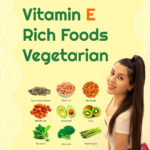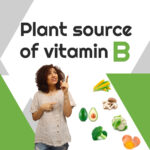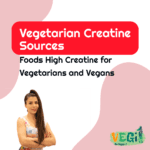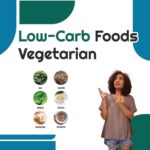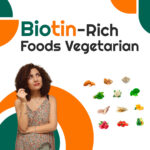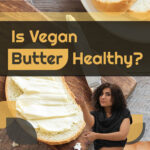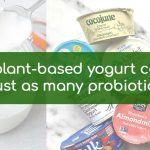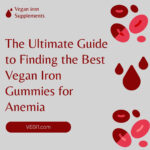Do vegan products contain chemicals? Healthy Vegan Diet
Unveiling 20 Harmful Ingredients in Vegan Food and Their Health Impact
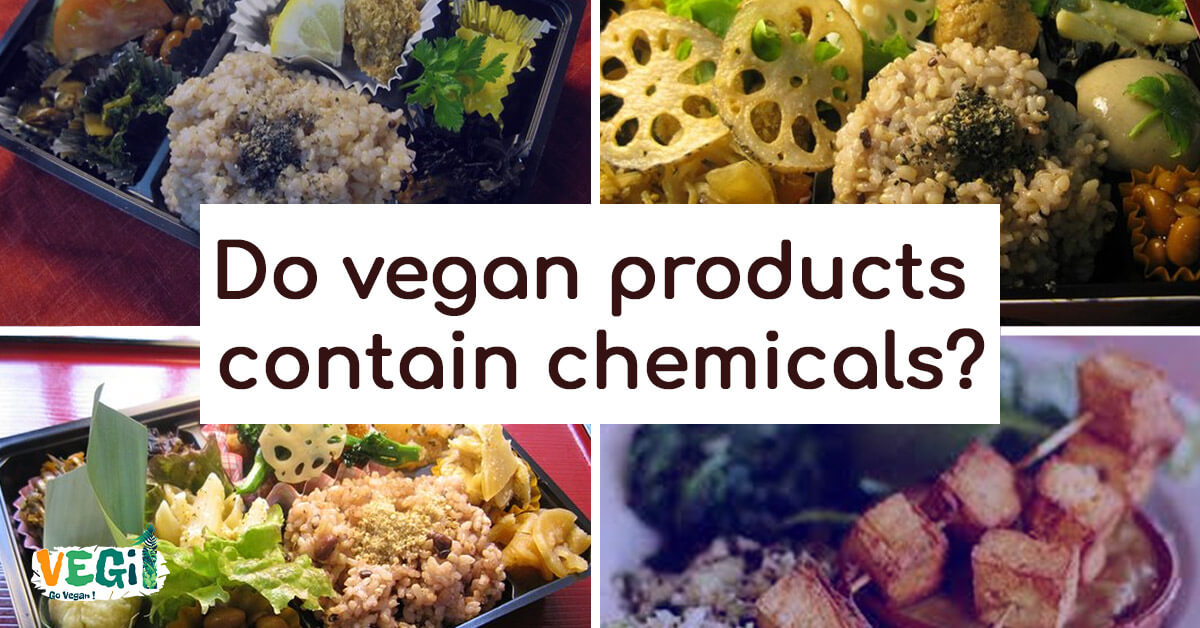
Going vegan is a big decision, and it’s one that I made a few years ago. At first, I thought it was the healthiest choice I could make, but I quickly realized that wasn’t necessarily the case.
While veganism is a great way to reduce animal exploitation and cruelty, it is important to ensure that we are not harming our health.
However, the prevalence of ultra-processed vegan foods has made it difficult to maintain a healthy diet.
In this article, I’ll explore the world of vegan junk food and provide tips on maintaining a healthy vegan diet.
In this article you will read:
Introduction to Veganism and Vegan Products
Veganism is a lifestyle that involves abstaining from consuming animal products, including meat, poultry, fish, dairy, eggs, and bee products such as honey, bee pollen, and royal jelly. Veganism is often associated with health benefits, such as a decreased risk of heart disease and certain types of cancer, as well as environmental benefits, such as reduced greenhouse gas emissions and decreased water usage.
Vegan products
So, you’re curious about vegan products, huh? Well, let me tell you all about :
Picture this: you’re strolling through the aisles of your favorite grocery store, feeling hungry and ready to grab some goodies. Suddenly, you come across a section that catches your eye, labeled “Vegan Products.”
People who shift to veganism are rising, especially in the northern hemisphere.
Because of that, most food industries produce vegan products to make vegans convenient in finding plant-based products.
Vegan products are items that are specially made without any animal ingredients or by-products. This includes everything from vegan meat alternatives to dairy alternatives and vegan cosmetics. Vegan products are often marketed as healthier alternatives to animal-based products. But, you should not include them in your diet for long due to the preservatives and additives.
If you want to know “Do vegan products contain chemicals,” you can follow me in the rest of the article to see how you can hurt your body’s health by relying on highly processed vegan foods.
What are highly-processed vegan foods?
It refers to food products that have undergone extensive industrial processing, typically involving multiple steps and the addition of various artificial ingredients. In other words, these foods have been transformed from their natural state into something completely different.
Ultra-processed vegan foods provide alternatives that closely resemble traditional animal-based products, making the switch easier and more enjoyable for many people.
Now, what exactly does “Ultra-Processed Vegan Foods” mean?
The term “Ultra-Processed foods” means a mixture of substances derived from foodstuffs consisting of three main macronutrients, namely starches, fats, and protein isolates, together with flavors, colors, emulsifiers, and additives for cosmetics.
These products are high in energy, sodium, fat, and sugar content while low in vitamins and minerals such as fibers.
Since these products are labeled with vegan signs, they are considered healthy foods, which is false.
If you are new to veganism, be cautious of being swayed by colorful packaging and terms that claim to be vegan. Not all vegan foods are necessarily healthy, contrary to what you might assume.
What is Junk Food for Vegans?
Junk food for vegans is any ultra-processed vegan food that has limited nutritional value and is high in calories, unhealthy fats, and sugar. These foods are often made with artificial ingredients, preservatives, and additives to mimic animal-based products’ taste, texture, and appearance. They are also often high in sodium, leading to high blood pressure and other health problems.
Many processed foods are high in sugar, salt, and unhealthy fats.
There are many fake vegan foods in the market, including no-chicken nuggets. These nuggets are high in sodium and include many artificial ingredients, preservatives, and processed oils.
So, you need to check the package and see the ingredients. Choose those that contain beans and legumes, which are both healthy and great sources of proteins.
Or opt for those packages that include quinoa and hemp, which is rich in lysine amino acid.
Consuming ultra-processed vegan foods regularly can have a negative impact on our health. Studies have linked the consumption of ultra-processed foods to an increased risk of obesity, heart disease, and other health problems.
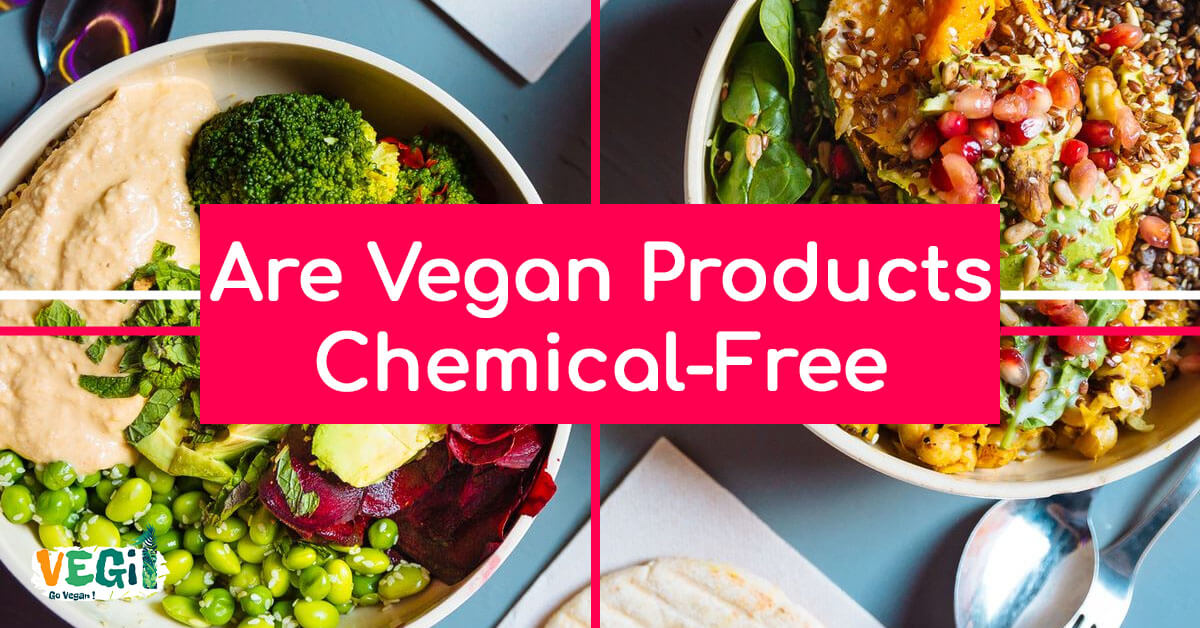
Chemicals included in vegan-based meats
One of the biggest concerns about vegan junk food is the presence of harmful chemicals and additives. Plant-based meat alternatives like burgers, sausages, and nuggets often contain titanium dioxide, which is used as a whitening agent and has been linked to cancer. They may also contain hexane, a toxic chemical used to extract oil from soybeans.
Another common ingredient in vegan meat products is carrageenan, which is used as a thickener and stabilizer. Carrageenan has been linked to inflammation, digestive problems, and even cancer.
Here are the Other chemicals that you can find in vegan-based meats that are not healthy:
-
Tertiary butylhydroquinone
TBHQ is a preservative material used in packed foods, preventing color alteration. Since studies have found a link between TBHQ and cancer, the FDA set a rule and restricted the use of TBHQ in foods.
-
Magnesium carbonate
Magnesium carbonate is used in food industries to make foods to preserve their color. In addition to the food industry, it is used in fireproofing and fire-extinguishing content.
-
Ferric orthophosphate
Ferric orthophosphate or iron phosphate is a chemical additive for making foods rich. Besides foods, it can be used as a pesticide for removing slugs and snails.
Although it is not considered a detrimental material, the small scale of this substance in food can cause skin and eye irritation and stomach issues.
-
Propylene glycol
Propylene glycol is used to make food stay moist, which has no color and is fragrant. In other industries, it is also used in e-cigarettes and antifreeze.
-
Erythrosine
It is a chemical substance used for adding color to food. Before 1990, this substance was highly used in cosmetics; since the link between erythrosine and cancer was detected, the FDA banned its use.
So, as you see, all of these chemicals are detrimental and long-term consumption of foods included in these substances can lead to serious health issues, leaving you in an awful situation rather than a usual omnivore diet.
The next section I’ll shows how vegan junk food can affect our health.
Chemicals Lurking in vegan products
Plant-based meat alternatives like burgers, sausages, and nuggets often contain chemicals and additives that are harmful to our health and the environment. Many of these products are highly processed and use large amounts of energy, water, and other resources to produce.
One example is the use of soy protein isolate, a highly processed form of soy protein stripped of its natural nutrients. Soy protein isolate is often used as a base for vegan meat alternatives, but it requires large amounts of energy and water to produce. In addition, the production of soybeans has been linked to deforestation and other environmental problems.
Certain vegan products, like vegan sausage rolls, are often worse for your health than the meat equivalent.
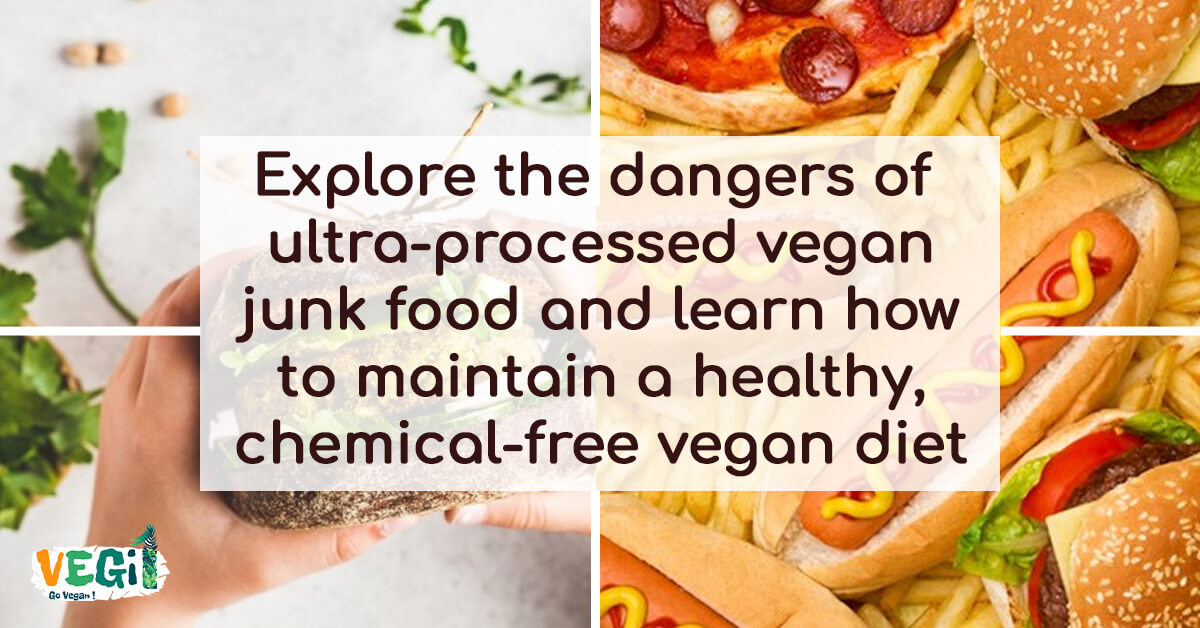
Vegan products can contain chemicals and additives. Choose natural, whole foods to maintain a healthy vegan lifestyle.
20 Bad Ingredients in Vegan Food to Avoid and Their Impact on Health
Many vegan foods also contain unhealthy fats and high amounts of sugar. Plant-based dairy substitutes like cheese, ice cream, and milk are often high in saturated and trans fats, leading to high cholesterol and other health problems.
Processed vegan snacks like chips, candy, and baked goods are often high in sugar and unhealthy fats, leading to weight gain, diabetes, and other health problems. In addition, many vegan meat alternatives contain high amounts of sodium, which can lead to high blood pressure and other health issues.
Here are 20 bad ingredients in vegan food to avoid and a brief explanation of why they can be unhealthy:
- Artificial Sweeteners: These can negatively affect gut health and may even increase cravings for sugary foods.
- High-Fructose Corn Syrup: It has been linked to obesity, diabetes, and heart disease due to its high sugar content.
- Trans Fats: These are known to increase bad cholesterol levels and raise the risk of heart disease and are often found in processed vegan snacks.
- MSG (Monosodium Glutamate): It’s a flavor enhancer that may cause headaches, dizziness, and other adverse reactions in sensitive individuals.
- Artificial Food Colorings: These additives have been associated with hyperactivity and allergic reactions in some individuals.
- Hydrogenated Oils: These oils contain trans fats and can contribute to inflammation and heart problems.
- Sodium Nitrite: Often used as a preservative in vegan deli meats, it has been linked to an increased risk of certain cancers.
- Carrageenan: This thickening agent that Found in many dairy alternatives can cause digestive issues and may be inflammatory for some people.
- Artificial Flavors: Synthetic flavors can contain hidden chemicals and allergens.
- Sodium Sulfite: A food additive used as a preservative that can raise blood pressure and increase the risk of heart disease.
- Potassium Bromate: A flour additive that has been classified as a possible human carcinogen and is banned in several countries.
- Sodium Benzoate: A preservative used in some vegan sauces and dressings, it can form a potentially harmful substance when combined with vitamin C.
- BHA (Butylated Hydroxyanisole) and BHT (Butylated Hydroxytoluene): Commonly used preservatives that have been linked to potential health risks, including cancer.
- Artificial Preservatives: These chemicals can accumulate in the body and have adverse effects on health over time; some are even potential carcinogens.
- Soy Isolates: Highly processed soy protein isolates may contain allergens and anti-nutrients that can disrupt digestion.
- Artificial Emulsifiers: These can disrupt gut health and may lead to inflammation and digestive issues.
- Sulfites: Used as preservatives, they can trigger allergic reactions in sensitive individuals.
- Aspartame: This artificial sweetener has been linked to various health issues, including headaches and digestive problems.
- Olestra (Olean): A synthetic fat substitute that can cause digestive discomfort and interfere with absorbing fat-soluble vitamins.
Propylene Glycol: A thickening agent that can cause allergic reactions and may negatively affect the kidneys and liver.
Aluminum Additives: These are sometimes used in vegan cheeses and have been linked to cognitive decline and neurological disorders.
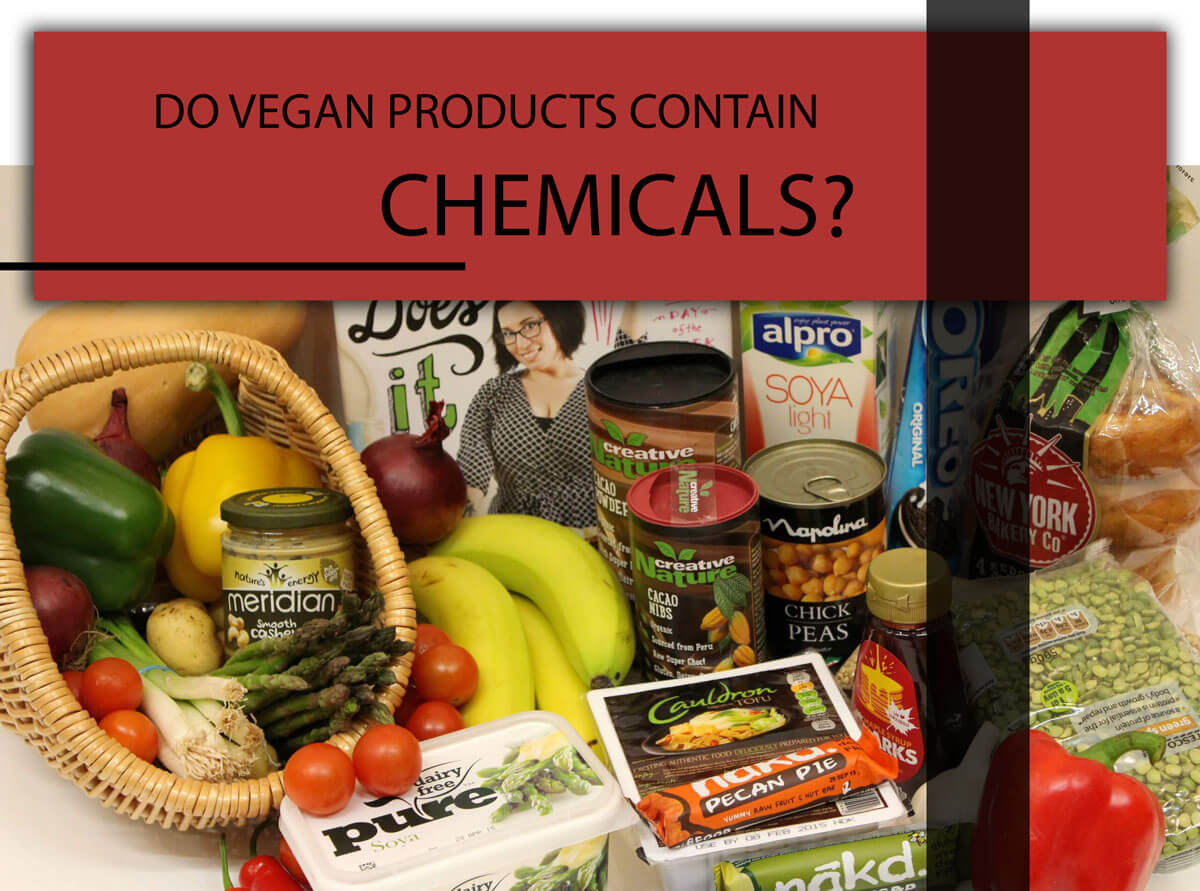
What are the Health Effects of Ultra-Processed Vegan Foods?
Ultra-processed vegan foods are often high in calories, unhealthy fats, and sugar, which can lead to weight gain, diabetes, and other health problems.
Some evidence suggests that a diet high in processed vegan food may increase the risk of cancer.
One study found that people who ate a diet high in processed foods had a higher risk of developing colorectal cancer.
Another study found that a diet high in soy protein isolate, which is often used in vegan meat alternatives, may increase the risk of breast cancer.
In addition, the additives and preservatives used in these foods may negatively affect our gut microbiome, which can lead to digestive problems and
Here is the list of potential health issues affected by eating high-processed vegan foods frequently:
- Weight gain and obesity
- Wheeze and asthma
- Hypertension
- High risk of cardiovascular disease
- Diabetes syndrome
- Low-density lipoprotein and high triglyceride levels (hyperlipidemia).
- Higher overall cancer risk, especially for colorectal and prostate cancers
- Gastrointestinal conditions include functional dyspepsia, constipation, diarrhea, and irritable bowel syndrome
Nutritional inadequacies in brought on by eating vegan junk food
When it comes to ultra-processed foods, you should consider the lack of nutrients in your diet, including iron and B vitamins.
Junk vegan foods are high in calories since they contain sugar and salt.
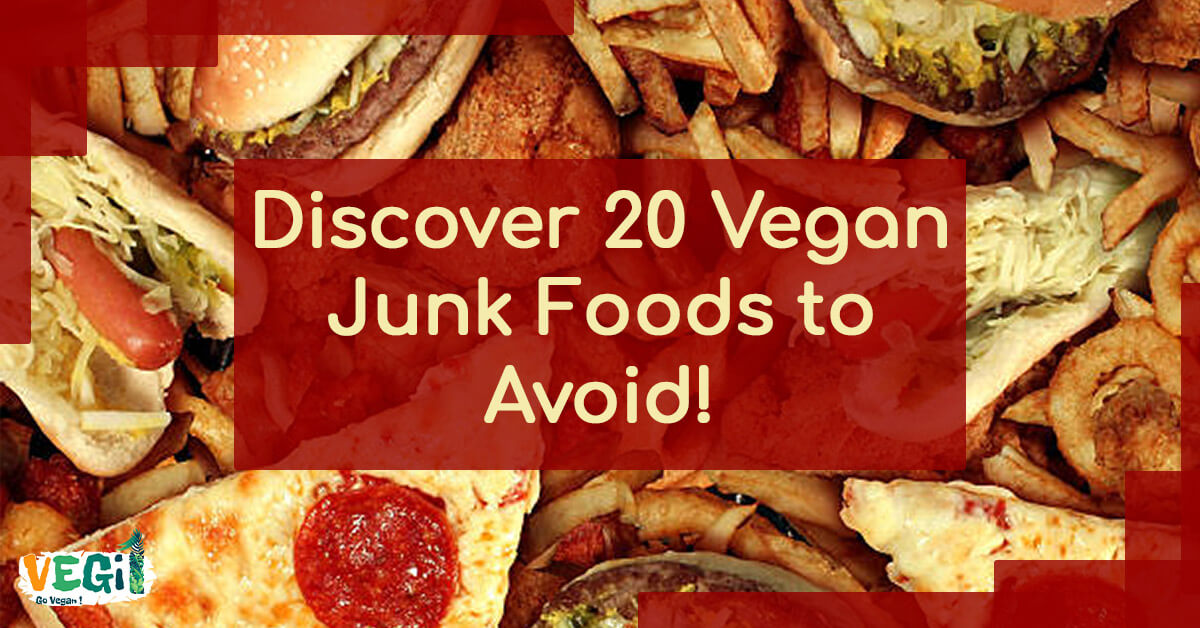
20 Junk Food for Vegans: Processed Vegan Foods to Avoid and Alternative Ways
- Vegan Bacon: Packaged vegan bacon is often highly processed and contains unhealthy additives. Make your own veggie bacon using thinly sliced tempeh or marinated eggplant slices. Marinate tempeh slices in soy sauce, smoked powder, and lemon juice, then pan-fry until crispy and enjoy them in sandwiches or as a side dish.
- Vegan Deli Meats: Processed vegan deli meats often contain high levels of sodium, unhealthy preservatives, and artificial additives. Swap it with homemade marinated tofu slices. To make it, slice tofu into thin strips, marinate in your favorite spices, and pan-fry until golden brown.
- Vegan Cheese Substitutes: Many store-bought vegan cheeses are highly processed and contain unhealthy oils, saturated fats, and additives. Look for options made from nuts or Make your own cheese substitute using soaked cashews, nutritional yeast, garlic, lemon juice, and a pinch of salt blended together. You can find plenty of recipes online for various types of vegan cheeses.
- Vegan Frozen Meals: Pre-packaged vegan frozen meals may contain excess sodium and unhealthy additives. Create your own freezer-friendly meals by batch-cooking whole grains, legumes, and vegetables. Freeze them in individual portions for quick and convenient meals.
- Vegan Ice Cream: Commercial vegan ice creams can be high in sugar and saturated fats. Make your own Ice Cream treats using frozen bananas. Blend them with a splash of plant-based milk, and add your favorite fruits or nuts for a tasty and guilt-free dessert.
- Vegan Hot Dogs: Processed vegan hot dogs can be high in sodium and unhealthy additives. To make healthy and delicious homemade hot dogs, combine mashed red beans, chopped greens, your favorite spices, and nutritional yeast in a food processor, shape them into hot dogs, and grill or bake them.
- Vegan Donuts: Store-bought vegan donuts may contain refined sugars and unhealthy oils. Bake your own healthier version using whole wheat flour and natural sweeteners like maple syrup, and bake them in a donut pan. Top them with a dusting of cinnamon or a homemade glaze.
- Vegan Cookies and Sweets: Who can resist a delicious cookie or cookie? But some store-bought plant-based options can be high in refined flour, sugars, and unhealthy fats. Make your own cakes and Sweets at home using healthier alternatives like whole grain flour and natural sweeteners like date powder or carob powder, and top them with fresh fruit or nuts.
- Vegan Energy Bars: Many store-bought vegan energy bars are packed with added sugars and artificial ingredients. Prepare homemade energy bars using a mix of nuts, seeds, dried fruits, and a touch of natural sweeteners like dates or honey. Blend the ingredients, press into a pan, and refrigerate until firm.
- Vegan Instant Noodles: Instant vegan noodles are often loaded with sodium, unhealthy oils, and MSG. Create your own quick noodle bowls using whole grain noodles, a variety of fresh vegetables, and a homemade broth made with vegetable stock and spices.
- Vegan Protein Powders: Some commercial vegan protein powders contain artificial sweeteners and unhealthy additives. Choose plant-based protein powders made with simple ingredients like pea, hemp, or brown rice protein. Check the label for minimal additives.
- Vegan Frozen Pizza: Frozen vegan pizzas can be high in sodium, unhealthy fats, and processed ingredients. Make your own pizza at home using a whole wheat crust, homemade tomato sauce, and a variety of fresh vegetables as toppings. Bake until golden and bubbly.
- Vegan Instant Ramen: Packaged vegan instant ramen often contains high sodium levels and artificial flavors. Create your own flavorful ramen bowls using fresh vegetables, tofu, or tempeh, and a homemade broth made with miso paste, ginger, garlic, and vegetable stock.
- Vegan Canned Soups: Canned vegan soups can be high in sodium and unhealthy additives. Whip up your own comforting soups by simmering a variety of vegetables, legumes, and herbs in a homemade vegetable broth.
- Vegan Chocolate Bars: Many commercial vegan chocolate bars contain refined sugars and unhealthy fats. Opt for dark chocolate with a high percentage of cocoa, or make your own homemade chocolate by melting cocoa butter, cocoa powder, and a natural sweetener like maple syrup or agave.
- Vegan Breakfast Cereals: Some store-bought vegan cereals are packed with added sugars and artificial flavors. Choose whole grain cereals with minimal added sugars, or make your own granola by mixing oats, nuts, seeds, and a touch of natural sweetener. Bake until golden and crunchy.
- Fake Meat Burgers: Some commercially available veggie burgers contain sodium, artificial flavors, and preservatives. Opt for homemade black bean or lentil burgers. Mash up cooked beans, add some breadcrumbs and spices, and bind them together with a flaxseed mixture. Shape into patties and cook on a grill or stovetop.
- Vegan Mayonnaise: Store-bought vegan mayo can contain excessive amounts of refined oils and additives. Whip up your own mayo by blending silken tofu, lemon juice, Dijon mustard, and a dash of salt. Adjust the flavors to your liking.
- Vegan Chicken Nuggets: Check the label; Vegan versions are highly processed and contain artificial additives. Make your own homemade nuggets using ingredients like chickpeas or tofu and potatoes.
- Vegan Butter Substitutes: Spreadable vegan butter can be a tasty addition, but some brands use refined oils and additives. Look for options made with natural, plant-based oils, or try avocado or nut butter instead.
- How To Make Quinoa And Red Bean Burger
- Homemade Soy Milk Recipe: Quick and Easy Guide
- How to Make Sunflower Seeds Tofu: Vegan White Cheese Recipes At Home
The Best vegan alternatives to junk veggie foods
Shifting to a vegan diet is not only healthful for your diet but also for the environment. But being vegan can be optimized by sticking to proper substitutes and not relying on junk or ultra-processed vegan foods in the market containing chemicals.
Although food industries try to meet your desire and offer a variety of vegan foods, it does not mean they are as healthy as natural vegan foods, which are free of chemicals such as preservatives.
If you have recently adapted to a vegan diet or want to start, there is no worry; with a proper and balanced meal, you can provide all of your body’s requirements.
Here is this list of foods you can use as substitutes for animal-based foods, allowing you not only to get enough notorious but also meet the diversity of your diet.
 Tofu
Tofu
Tofu, derived from soybeans, is packed with protein. You can find tofu in different textures, making it the best choice for making different foods such as stir-fries, soups, and salads.
If you are a fan of sandwiches or burgers and are looking for an alternative option for meat, you can use tofu.
 Tempeh
Tempeh
Tempeh is also made of soybean but has a more solid texture and tastes like nuts. The slice of tempeh can be used in cooking stew, soups, and casseroles.
 Seitan
Seitan
Seitan or wheat gluten is derived from wheat flour which is starch free. It is the best substitute for meat since it has a chewy texture and can be used in preparing stew, stir-fried, and sandwiches.
 Chickpeas
Chickpeas
Chickpeas can make different foods such as hummus, falafel, and curries as a versatile legume. Chickpeas can provide your body with protein as it is one of the best alternative options for meat.
 Nutritional yeast
Nutritional yeast
Nutritional yeast is the best substitute for cheese and can be used in making vegan cheese sauce or sprinkled when making pasta or popcorn. This yeast is yellow and nutty-packed with vitamin B.
 Vegan milk
Vegan milk
Many different types of milk are not based on dairy, such as soy, almond, or oat.
So, they are the best replacement for cow milk used in coffee or tea and baking.
 Vegan butter
Vegan butter
Vegan butter, or margarine, originated from plant oil, including soy, coconut, and canola. It can be used in cooking, baking, or for making toast.
 Coconut cream
Coconut cream
Coconut cream can be used in making heavy texture cream without dairy. A coconut-based taste allows you to use it to make desserts, pies, and ice cream.
 Aquafaba
Aquafaba
Aquafaba texture is like the white part of an egg, found in chickpea cans, and is used for making meringues, macarons, and mayonnaise.
 Flax seeds
Flax seeds
Flax seeds are the best egg alternative and can be used in baking. To use it in cooking, add one tablespoon of flax seeds to three tablespoons of water for each egg mentioned in the recipe. The health advantage of flax seeds is a high amount of fiber and other nutrient elements.
 Chia seeds
Chia seeds
Another egg substitute is chia seed which can be added in one tablespoon to three tablespoons of water, making a gel texture.
 Vegan alternative options to meat
Vegan alternative options to meat
If you are a meat lover but find a healthier vegan diet, you can incorporate many meats alternative options into your vegan diet. You can combine soy, wheat, and other vegan ingredients to make vegan meat.
 Vegan cheese
Vegan cheese
To make vegan cheese, you can combine some ingredients like nuts, soy, and potatoes which are dairy free.
 Grape syrup
Grape syrup
To look for an alternative option for honey, you can use frape syrup which is sweet and has a texture like honey.
How to Avoid Unhealthy Vegan Food
Embarking on a vegan diet is an exciting choice, but ensuring you get all the essential nutrients your body needs is important.
Vegan products may contain processed and chemical substances that can be harmful to our health. When we decide to become vegan, we must put our health first. We can make food at home and use natural alternatives instead of processed ingredients.
Here, I’ll explore some delightful ways to sidestep unhealthy plant-based foods so that you can relish a balanced and nourishing vegan lifestyle.
- The best way to avoid unhealthy vegan food is to focus on whole, plant-based foods rich in nutrients. This includes fruits, vegetables, whole grains, nuts, seeds, beans, and legumes. These foods are naturally low in unhealthy fats, sugar, and sodium. They are rich in essential nutrients like protein, vitamins, and minerals.
- One way to avoid processed vegan products is to make sausage, tofu, and tempeh at home. With a blender, we can easily make all kinds of tofu and tempeh at home.
- By substituting meat in foods with shiitake mushroom, oyster mushroom, button mushroom, soy tofu, tempeh, seitan, beans, and legumes, we can ensure that we are getting enough protein.
- Types of plant milk we can make at home include almond milk, soy milk, flax seeds, hemp seed milk, chia seed milk, cashew milk, coconut milk, oat milk, and hazelnut milk. These alternatives are healthier than cow’s milk and do not contain any chemicals or processed ingredients.
- Honey is another product that vegans avoid. Luckily, there are many alternatives to honey, including maple syrup, agave syrup, coconut syrup, rice syrup, grape syrup, carob syrup, date syrup, and molasses.
- When choosing vegan meat alternatives, look for products made with whole, minimally processed ingredients like beans, lentils, and quinoa. Avoid products that contain harmful chemicals and additives like titanium dioxide, hexane, and carrageenan.
- Ground flaxseeds, chia seeds, silken tofu, aquafaba, and black salt are great alternatives to eggs. These alternatives are healthier than eggs and do not contain any chemicals or processed ingredients.
- Include nutrient-dense ingredients like kale, spinach, blueberries, quinoa, chia seeds, and spirulina in your meals.
- Explore diverse plant-based protein sources like lentils, chickpeas, tofu, tempeh, seitan, quinoa, and edamame.
- Healthy fats play a crucial role in maintaining good health. Incorporate sources like avocados, nuts, seeds, and plant-based oils (such as olive, coconut, or flaxseed oil) into your meals. These fats are rich in omega-3 fatty acids and help support heart health, brain function, and overall well-being.
- Get used to reading food labels. Sure to read the labels like a seasoned pirate reading a treasure map. Look for sneaky additives, preservatives, artificial flavors, and added sugars.
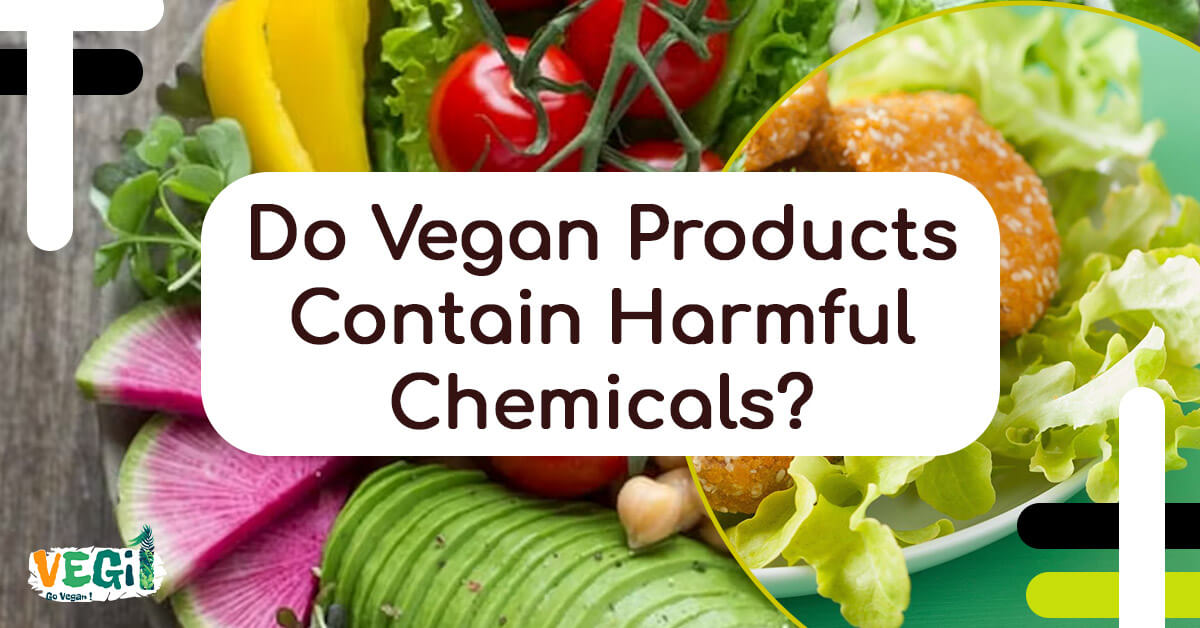
5 Questions and Answers about Vegan Products and Chemicals:
Does Plant-Based Meat Contain Titanium Dioxide?
Titanium dioxide is a chemical that is commonly used in plant-based meats to give them a more meat-like appearance. Some studies have suggested that consumption of titanium dioxide may be linked to an increased risk of cancer.
Are there harmful chemicals in plant-based meat?
Some plant-based meat alternatives may use titanium dioxide as a whitening agent, which has been linked to cancer. Hexane, a toxic chemical, is also used in the extraction of soybean oil, which is a common ingredient in vegan meat products. It’s important to be mindful of the ingredients used and choose plant-based meats that prioritize natural and healthier alternatives.
What are Ultra-Processed Vegan Foods?
Ultra-processed foods are those that are made with a large number of ingredients and are highly processed. These foods often contain additives, such as preservatives, artificial colors and flavors, and other chemicals. Ultra-processed vegan foods include items such as vegan hot dogs, vegan bacon, and vegan chicken nuggets.
Consuming ultra-processed vegan foods on a regular basis can have a negative impact on our health. Studies have linked the consumption of ultra-processed foods to an increased risk of obesity, heart disease, and other health problems.
What are some harmful chemicals to watch out for in vegan food?
Several chemicals commonly found in processed vegan foods are best to avoid. Some examples include artificial sweeteners, high-fructose corn syrup, trans fats, sodium nitrite, carrageenan, artificial flavors and colors, and hydrogenated oils. These chemicals have been associated with various health risks, such as obesity, heart disease, and allergic reactions.
Conclusion
Going vegan is a compassionate and ethical choice that can contribute to reducing animal exploitation and cruelty. However, it’s important to be mindful of the quality of the vegan products we consume and prioritize our health. While veganism is often associated with health benefits, the prevalence of ultra-processed vegan foods has made it challenging to maintain a healthy diet.
Ultra-processed vegan or junk food can be high in unhealthy fats, sugar, and artificial ingredients. They are often made to mimic the taste, texture, and appearance of animal-based products but lack essential nutrients. Regularly consuming these foods can lead to weight gain, diabetes, heart disease, and other health problems.
Moreover, some vegan products may contain harmful chemicals and additives. Ingredients like titanium dioxide, hexane, carrageenan, and artificial flavors and preservatives have been linked to health issues and should be avoided.
To maintain a healthy vegan diet, focus on whole, plant-based foods that are rich in nutrients and avoid processed foods that are high in unhealthy fats, sugar, and sodium.
We can avoid processed vegan products by making food at home and using natural alternatives. By substituting protein in foods with plant-based sources, we can ensure that we are getting enough protein. We can also make our own plant milk and avoid honey by using alternatives like maple syrup and agave syrup. When we decide to become vegan, let’s put our health first and make sure that we are not consuming any harmful chemicals.
In this article, I cover all the detrimental effects of vegan products in the market and provide you with some tips to substitute them with more healthy vegan options at home.
I hope this article has provided you with valuable insights and tips for maintaining a healthy, chemical-free vegan lifestyle and helps you answer questions about “Do Vegan Products Contain Chemicals?”.
I would love to hear your thoughts and experiences in the comments below. Have you encountered any challenges in finding healthy vegan products? What strategies have you used to ensure a balanced vegan diet?
Have you eaten vegan products in the market and checked the chemicals in the package?
What were those?
Please tell us in the comment section.
References:
- https://www.menshealth.com/nutrition/g22063287/unhealthy-vegan-foods/
- https://kstawinska.medium.com/7-harmful-chemicals-in-vegan-meat-how-much-do-we-dare-to-question-our-eating-ideology-e73b988bfde0
- https://www.bbc.com/future/article/20200129-why-vegan-junk-food-may-be-even-worse-for-your-health
- https://www.healthline.com/nutrition/things-vegans-dont-eat
- https://www.news-medical.net/health/What-are-the-Health-Effects-of-Ultra-Processed-Vegan-Foods.aspx


